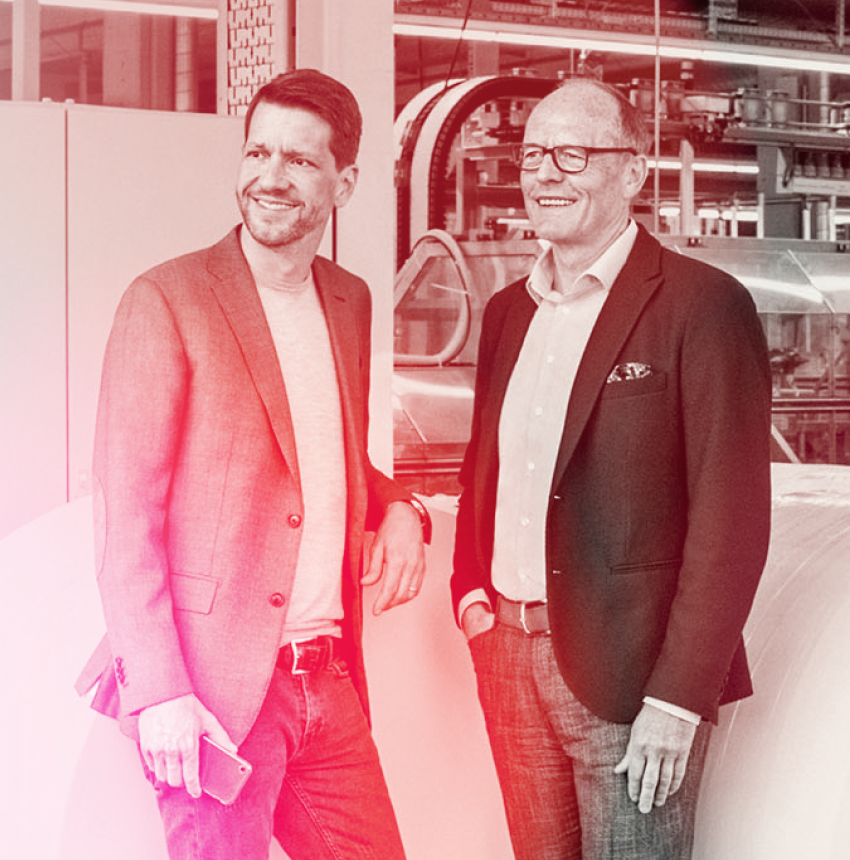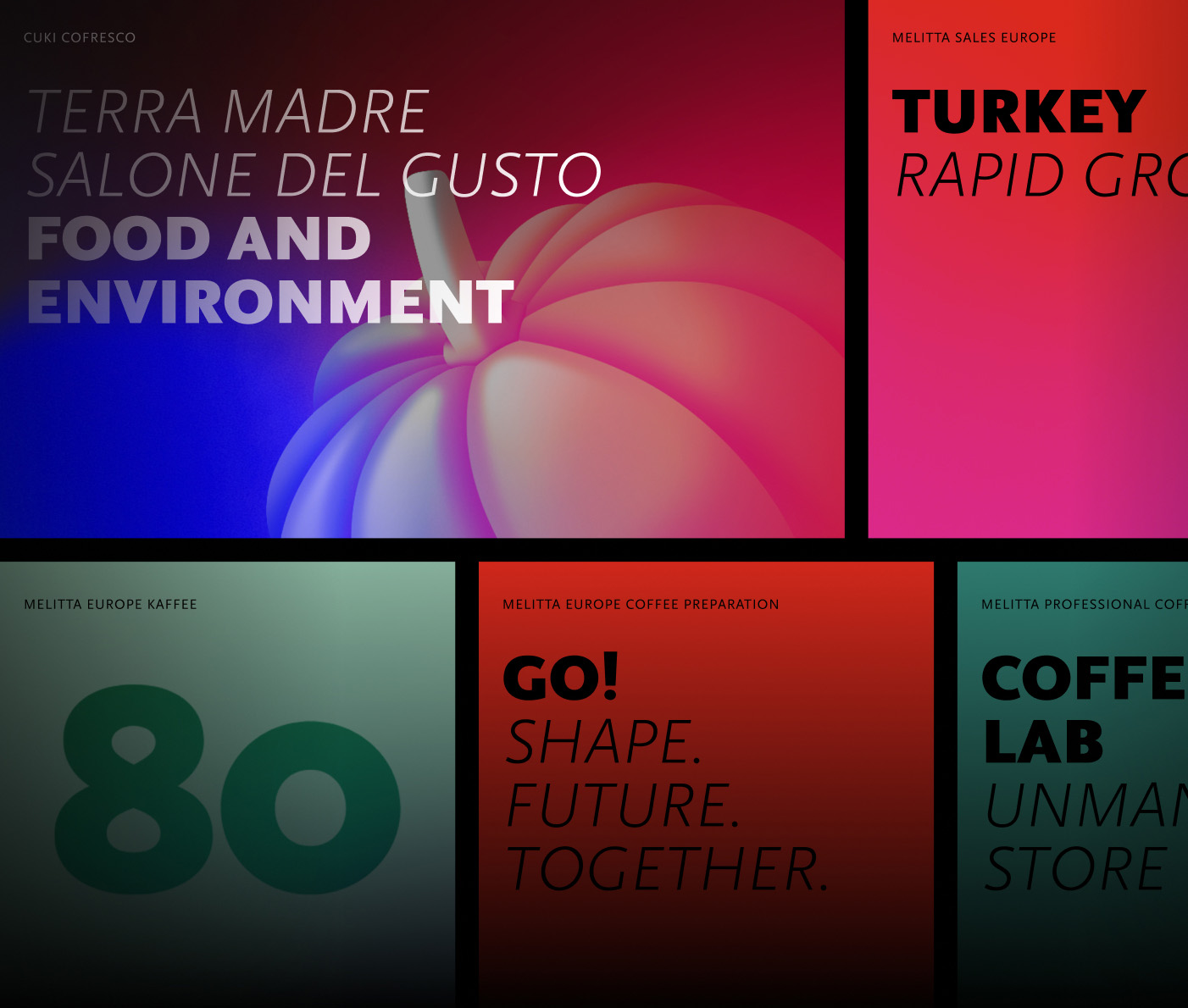We as the Melitta Group – like all companies and industries – want to clearly define our role in solving global problems, i.e. our benefit for mankind – and derive our corporate objectives from this endeavor. It is in our own fundamental commercial interest to act systemically in such a way that all our actions have a positive impact on society and the environment.
Building on our pioneering spirit, our desire to shape the future and to be there for people, we develop guidelines to structure our interaction with other industries, companies, society, and politics in order to actively drive the transformation process. In doing so, we ask ourselves questions that are fundamental for the alignment of our company, the economy, and society: How can we continue to optimize our processes, systems, and structures in such a way that business decisions support ecological and social objectives and in no way adversely affect them? How can we cooperate with other industries, companies, and suppliers to act in a consistently ecological and transparent fashion across all supply chains? How can we exert influence to readjust the political-economic network in order to cooperate effectively? How can we create a successful relationship culture – inspiring people and providing orientation in order to build confidence and trust? As a community of interlocking operating units, how can we conserve the resources we use and return them to a valueadding cycle in order to secure our supply of raw materials? How can we successfully operate outside the realm of classical growth concepts and traditional economic logic? In everything we do, the first question is always “What is good for us all?”. How can we play a meaningful role in shaping the future of our company and thus the future of humanity?
Capabilities rather than skills.
In order to succeed in our hyper-connected, rapidly changing world – in other words, to have a positive impact on society and the environment – companies need to be adaptable. As the lifeblood of such successful companies, adaptability means always being prepared for the unexpected and learning to deal with it; always being willing to view the world from a new perspective; and always challenging and rewriting concepts or received wisdom. More than ever before, long-term success depends on how companies deal with unsettling change and global crises, as well as the resulting desires, needs, and values of customers and stakeholders.
Throughout our history, we have repeatedly demonstrated our ability to adapt and in so doing strengthened our resilience. Without doubt, this was only possible because – then as now, and in the future – we are never satisfied with merely reacting to changing market conditions. It has always been our mission to anticipate and proactively shape change, and thus to serve as an inspirational role model.
In order to continue this dynamic approach, we want to develop more and more into a network of independent, decentralized teams – away from hierarchical structures and rigid processes. Our aim has always been to leverage both the individual and collective potential of all people in our organization. Every single employee should be involved and afforded the responsibility and autonomy needed for their creativity to fully unfold. This is how we intend to ensure that a culture of trust and openness continues to flourish within our company. This is consistent with our understanding of an appreciative corporate culture, which forms the breeding ground for the commitment and dedication of our employees. Our culture is fundamentally important for the performance of our company and its contribution to society.
100 % circular – foundation of the transformation.
A regenerative approach along our entire value chain is an indispensable step on the road to a resilient and environmentally friendly economy – to conserve, restore, and regenerate resources rather than deplete or destroy them. The need for a regenerative economic model and the disruptive potential this offers represent a sea change in 21st-century business practices. Regenerative strategies are not only beneficial for the environment, but crucially also bring economic benefits: research conducted by the Ellen MacArthur Foundation shows that the circular economy is currently only being implemented in a small portion of the global economy. The circular economy can play a vital role in halting and reversing biodiversity loss as it promotes sustainable resource management and can make an important contribution to ecosystem regeneration, especially when organic residues are returned to the biological cycle. By reducing resource consumption and optimizing resource efficiency, we can reduce the pressure on ecosystems and preserve natural habitats. The introduction of effective waste management systems, as well as the ongoing expansion of recycling and reuse systems, will enable us to minimize the amount of waste going into landfills, incinerators, or the environment by recovering resources and extracting as much value from them as possible. By steadily shifting to renewable energy sources as well as renewable raw materials and their recycling, we can fulfill our social and environmental responsibilities while at the same time saving money. Naturally, the circular economy is no panacea for the challenges we face in the field of biodiversity and must be complemented by a wide range of interlocking measures. However, we believe it can make an important contribution to the broader objective of halting and reversing the loss of biodiversity. The transformation of our complex world can only succeed if all factors interact in a mutually beneficial manner.








